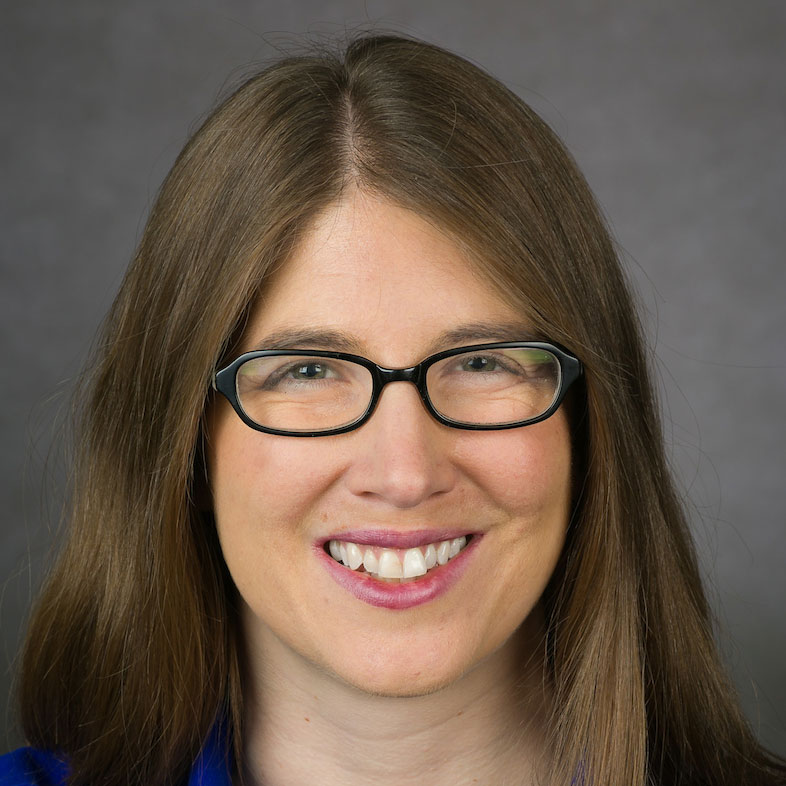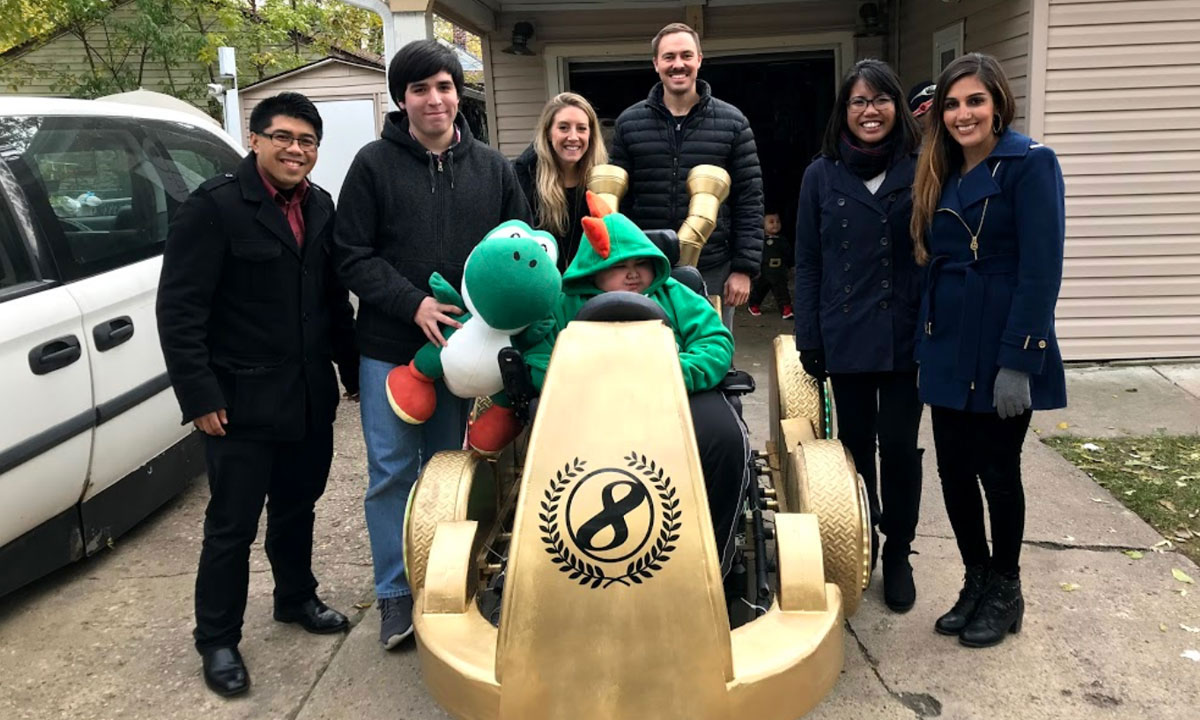The MA in Digital Communication and Media Arts (DCMA) teaches students to bring stories to life. Transmedia is the art and craft of telling a story across a span of digital (and non-digital) media. Whether this be in the style that builds campaigns around franchises and popular fandoms, or the approach of splintering a story across media to take advantage of the affordances of each form, transmedia is the nexus to which all media converges.
This program uniquely bridges two colleges (CDM and the College of Communication), resulting in a truly interdisciplinary degree that affords students the opportunity to apply theory and research to medium specific design practices and transmedia storytelling. This is a practical degree, in that it teaches students technical and artistic skills in various digital (and physical) media, while giving them the critical tools to become better communicators in a digital environment.
Students choose one of two tracks. The Media Arts track offered through CDM prepares professional media artists to be leaders in transmedia storytelling and media production. The skills they acquire will open up a range of career opportunities that include: online marketing, mobile communications, interactive media design, online content creation, web design, social media, digital product design and development. Students coming into the program with previous training or experience in a digital medium can prepare for roles in media art direction, project management and digital media management.
Students interested in the Digital Communication track, which focuses on the theory and strategy of planning and writing about media, should apply through the
College of Communication.
For international students: this is a STEM-designated program, which can qualify you to extend your post-graduation stay in the United States.
Degree Requirements
Learning Outcomes
Students will be able to:
- Understand and effectively explain how digital technology has affected communication practices across a range of subjects and disciplines, including the underlying ethical issues digital technology has brought to contemporary society.
- Assess and inventory relevant media projects; apply varied research methods and design thinking to develop new and relevant digital media products that address contemporary problems.
- Adequately demonstrate key competencies in still and moving image production, graphic and interactive design, and other technologies related to digital media arts.
- Identify and employ the affordances of digital media components in order to effectively develop a story or campaign across multiple media formats.
- Develop and deliver professional-level project pitches and research presentations.
Alumni Insights
“The DCMA program is made up of incredible faculty and backed by a stellar college. I felt supported 100% of the time and always felt comfortable with my professors. I was allowed to tailor the classes to fit what I wanted to learn, which is incredibly valuable.”
“I gained a tremendous amount of knowledge, not just from the classes, but from my peers as well. I feel more confident and skilled in digital media.”
“DCMA is a great program and I highly recommend it if you're trying to get into the digital marketing field or design.”
-
/MediumPicture/$value) LeAnne Wagner
LeAnne Wagner
Professional Lecturer, CDM School of Design
LeAnne is an experience designer who focuses on emerging user interfaces and digital fabrication. She brings a diverse background of professional experience, from advertising and graphic design to design thinking and product development. She is particularly passionate about projects that center on social impact and collaborating with community partners.
-
/MediumPicture/$value) Vivian Xu
Vivian Xu
Assistant Professor, CDM School of Design
Vivian is an interdisciplinary artist, designer, and researcher. Her work investigates issues at the intersection of biology, technology, material ecology, and design. These works often take the form of objects, installations, wearables, and toolkits that transcend the boundaries of biological and digital media. Her creative practice is informed by emerging practices between the arts and sciences that merges approaches from the studio and the laboratory. Her process is research driven and grounded in design methodology.
-
 Samantha Close
Samantha Close
Assistant Professor, College of Communication
Samantha’s research interests include digital media, theory-practice, fan studies, video game studies, gender, race, and Japanese media. She focuses particularly on labor and transforming models of creative industries and capitalism. Her documentary,
I Am Handmade: Crafting in the Age of Computers, based on her most recent research project, is hosted online by Vice Media’s Motherboard channel. Her writing has appeared in several edited volumes and academic journals.

Our faculty are engaged in innovative scholarly and creative work and offer collaborative research opportunities with students and partners. Here, LeAnne Wagner leads students in a yearly collaboration with the non-profit Magic Wheelchair. Each Fall they work with a local family to build an epic costume for a kiddo in a wheelchair at no cost to the family, like this
Mario Kart wheelchair costume, complete with Arduino-controlled LEDs, to light up the Halloween experience of a local boy. Students learn fabrication skills, field research, and fundraising skills through out the project.
Annual Showcase
Each June, the School of Design holds an end-of-year showcase to celebrate the graduating classes from the DCMA and Graphic Design programs. DCMA students exhibit their final thesis projects while graphic design seniors showcase their capstone work. The event is open to the public.
We invite diverse speakers from across the globe who have created innovative responses to the personal, local, and global challenges of the 21st century to lead workshops and discussions.
This series brings innovative practitioners and industry leaders to the DePaul campus for film screenings, on-stage conversations, and professional panels. Students are given the opportunity to have direct and meaningful contact with established and emerging innovators and professionals in the field.
The Idea Realization Lab (IRL) is a 4,500 square foot, student-driven makerspace that encourages the pursuit of thinking through making. IRL houses all types of creative equipment, from traditional woodshop tools to a variety of state-of-the-art fabrication tools, like 3D printers, thermal formers, laser cutters, and more.
CDM boasts a one-of-a-kind, 32,000 square foot professional production facility and cinematic learning environment formed in alliance with Cinespace Chicago Film Studios. Students learn filmmaking craft and technique steps away from high-profile network productions filming on the Cinespace lot. The Equipment Center and Production Office, housed on our Loop Campus, are the gateways to transmedia production needs like cameras, casting, or permits.
DCMA students are encouraged to join some of the many student organizations housed at CDM. These include DePaul Digital Media Ties, DUXA (DePaul User Experience Association), XD Roundtable, and DePaul AIGA. Alliances with the Coleman Entrepreneurship Center, professional incubators like 2112 and 1871, and a robust network the school maintains within the uniquely rich Chicago creative community allow for real-world experience, insightful professional events, mentorship, internships and more.
Application Deadlines
| Enrollment Quarter | Domestic Student Deadline | International Student Deadline |
|---|
| Fall | August 1 | June 15 |
| Winter | December 1 | October 15 |
Admission Process
The graduate application process involves completing an online application, sending in your transcripts and submitting any supplemental material (e.g., letters of recommendation, certifications, etc.). To learn more about your program specific requirements, visit our
Graduate Admission page.
Admission Requirements
Contact Graduate Admission